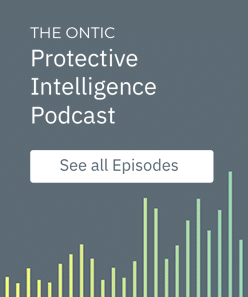Podcasts
Former Marine Infantry Officer Shares Why Strategic Assessments Precede Tactical Mitigation
Jack Stradley is a leader and entrepreneur with over forty years of worldwide experience in security, risk management, crisis response, and enterprise value creation. He is the founder and CEO of Exlog Global, offering risk management and crisis response services to keep people safe.
Prior to Exlog, he was the co-founder and CEO of Crucible, a preeminent provider of high-risk environment training, security management, and consulting. Jack started his career in the U. S. Marine Corps, serving twenty years as an infantry officer with broad experience in special operations, counter-terror, and counter-drug operations.
Jack joins host Chuck Randolph to discuss:
- How his time in the Marines has influenced his leadership style.
- The evolution in training for crisis response in high-risk environments.
- How to understand the needs of the customer or protectee and build a strategy around it.
- The best ways to add value in a crisis (hint: it’s not a knee-jerk reaction).
Key takeaways:
[12:29] Jack Stradley: The main thing I realized when I was COO of an organization was that security has so many different definitions. I worked with a company that did strictly bomb blast mitigation on buildings and then I had a bunch of EP guys that ran around with surveillance kits who thought about motorcade tactics — and those two people never talked to each other. One of the things the Marine Corps taught me was the “combined arms team.” You know that you don’t fight in a silo — you bring your artillery, logistics, and your air power and you all work seamlessly together.
[14:01] Jack Stradley: Today there are tremendously talented people with skills who apply those skills to do security or protection or analysis. Is really kind of easy. It’s bringing all the pieces together and then showing value — making people understand the value because security for security’s sake is not necessarily valuable. Security is when you can quantify or articulate its value.
[14:50] Jack Stradley: It’s important to remember the risk and the reward for what you’re doing and there are no perfect solutions. You know you can’t live inside Fort Knox and never leave. That’s not a realistic approach so there are always trade-offs. There’s always a risk tolerance that has to be understood. That’s the ongoing struggle because risk tolerance for each one of us is different.
[24:35] Chuck: You’re involved when many things go south for organizations. How do you help organizations or what’s your recommendation for maintaining a presence of mind?
[25:23] Jack Stradley: I think that most people react in a crisis and that’s the last thing you want to do. You want to take a beat — now that beat can be a microsecond but you take a beat and you evaluate. You look, you listen, you think, then you act — act deliberately, don’t react.
Before you have to commit to a course of action and you should take as long as you have but no longer to evaluate things and then make a conscious decision and then continue to evaluate because if it’s not working it’s maybe time to change course.
[31:10] Jack Stradley: We are inundated with information and that’s not a revelation to anyone out there. The hard part is to just you know, be able to see through the noise in the chatter and try and get to the fundamentals in the foundation. Understand — what does this mean to me and how does this affect me and my plans? That’s part of what we try to do for people is help them with that.

